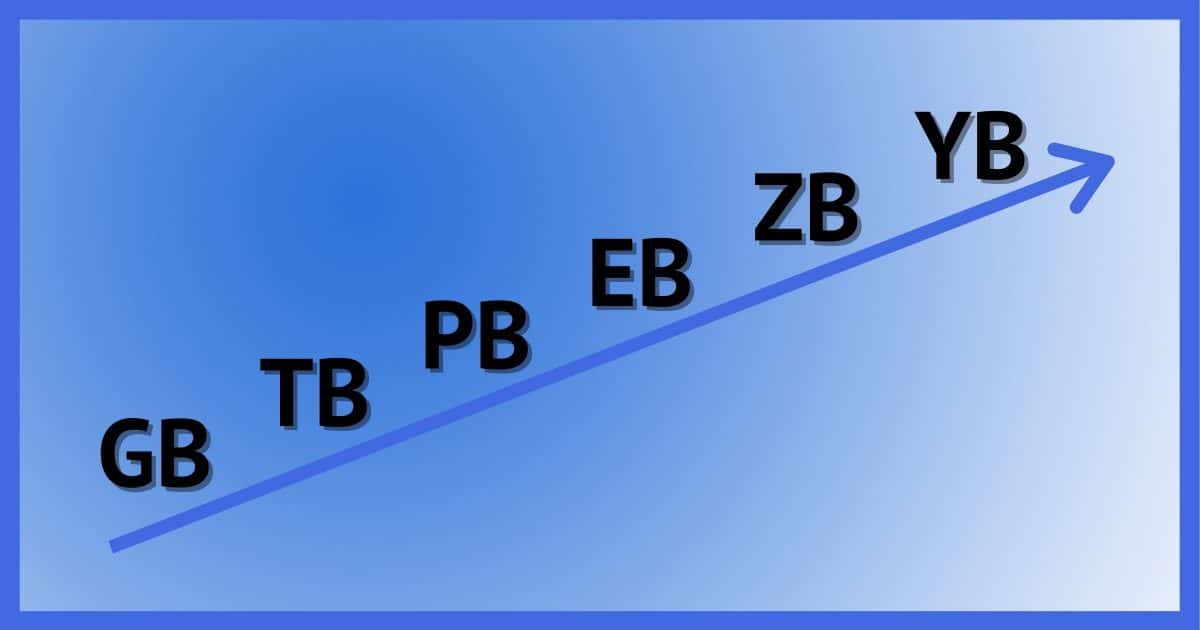In the world of computing and technology, terms like Megabyte (MB) and Gigabyte (GB) are essential to understanding how we store and manage data. Here, we’ll explore in detail what these units of measurement mean and how they impact data storage on your devices.
What is a Megabyte?
A Megabyte represents approximately one million bytes. It is one of the most common units of measurement used to express file size and storage capacity on digital devices. For example, a simple text document might take up a few kilobytes (KB), while a high-resolution photo might take up several megabytes.
What is a Gigabyte?
A Gigabyte, on the other hand, is equivalent to approximately one thousand megabytes. This unit of measurement is even more common when talking about the storage capacity of devices such as computers, smartphones and tablets. One gigabyte can store approximately 200 songs in MP3 format or around 310,000 text messages. Many devices today have capacities measured in tens or even hundreds of gigabytes, allowing for extensive libraries of videos, apps, and other data to be stored.
Impact on Data Storage
The choice between megabytes and gigabytes has a significant impact on data storage management. In the digital age, where the volume and quality of digital content is constantly increasing, understanding these units is crucial to optimize storage usage:
- Storage space: Knowing the difference between MB and GB will help you choose storage devices suitable for your needs. For example, if you frequently download and store high-definition movies, you’ll need a device with storage of hundreds of gigabytes or even terabytes.
- Speed and performance: Devices with more gigabyte storage space tend to offer better performance for activities that require large amounts of data, such as video editing or online gaming.
- Cost: Generally, the greater the number of gigabytes, the greater the cost of the device. Understanding your storage needs can help you make more informed and cost-effective decisions when purchasing new devices.
In the context of these concepts, Ibertrónica mini computers offer a variety of options with different storage capacities, allowing you to choose according to your specific space and performance needs.
Conclusion
Knowing the difference between megabyte and gigabyte is essential not only to make effective use of current technology but also to plan future upgrades or new acquisitions. By understanding these basic units, you can better manage your devices’ resources and ensure they meet your digital storage needs.
Remember that at Ibertronica.es we offer you a wide range of storage technologies to satisfy all your needs. From affordable solutions to high-performance options, we have the perfect storage technologies for you.
You can also contact us through our website, phone (917 10 95 15) email ([email protected]) or social networks, and request the necessary information to carry out your choice. An Ibertrónica advisor will assist you and help you choose the storage technologies that best suit your needs and objectives.




